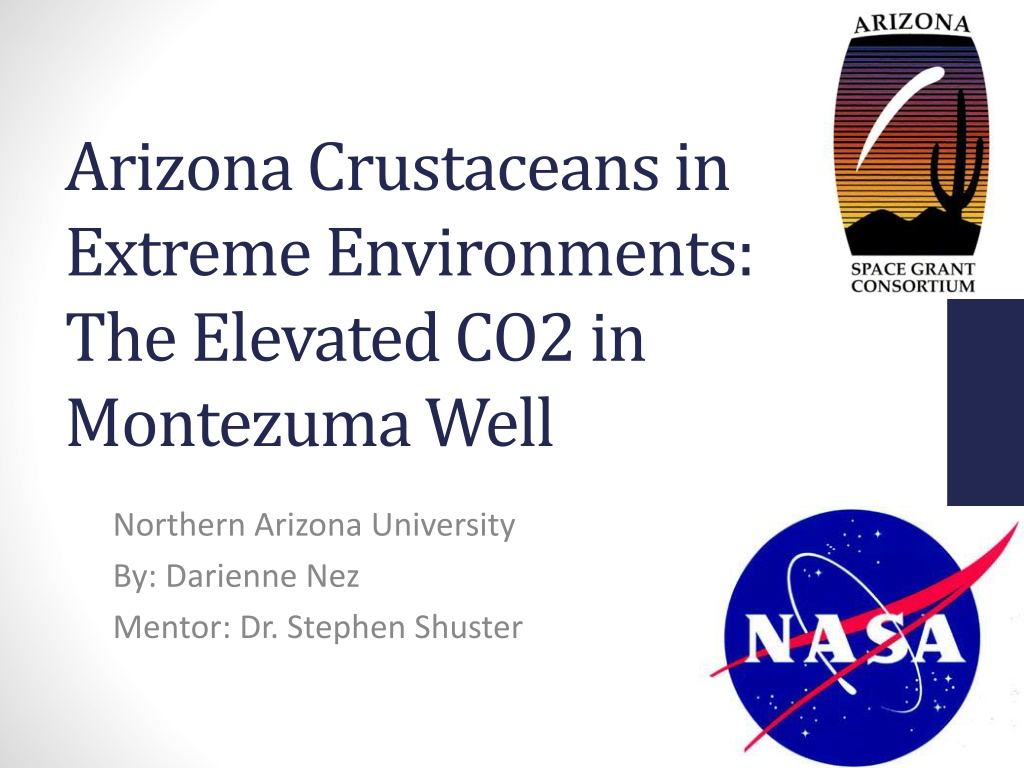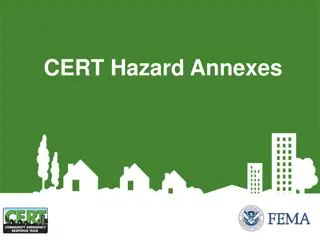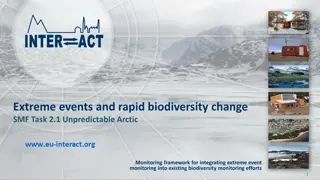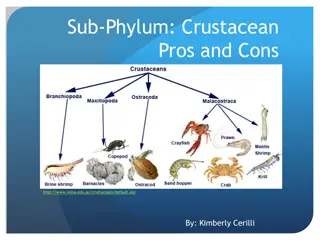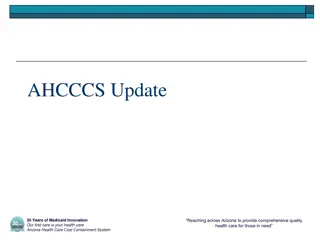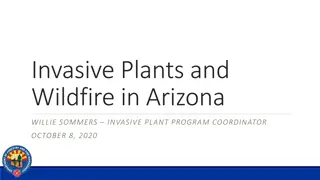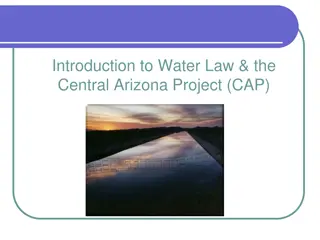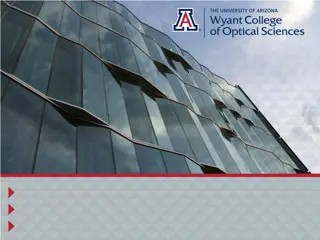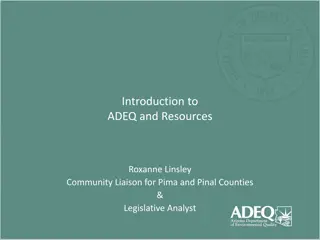Arizona Crustaceans in Extreme Environments Study
The study investigated the survival of amphipods in Montezuma Well, Arizona, under different water conditions. Results showed that amphipods survived better in their native water, indicating local adaptation. Acknowledgments to NAU, NASA Space Grant Program, and Dr. Stephen Shuster.
Download Presentation

Please find below an Image/Link to download the presentation.
The content on the website is provided AS IS for your information and personal use only. It may not be sold, licensed, or shared on other websites without obtaining consent from the author.If you encounter any issues during the download, it is possible that the publisher has removed the file from their server.
You are allowed to download the files provided on this website for personal or commercial use, subject to the condition that they are used lawfully. All files are the property of their respective owners.
The content on the website is provided AS IS for your information and personal use only. It may not be sold, licensed, or shared on other websites without obtaining consent from the author.
E N D
Presentation Transcript
Arizona Crustaceans in Extreme Environments: The Elevated CO2 in Montezuma Well Northern Arizona University By: Darienne Nez Mentor: Dr. Stephen Shuster
Montezuma Well & Beaver Creek
Montezuma Well Amphipod
Water Chemistry: Beaver Creek and Montezuma Well water chemistry pH 7.2 6.4 Temperature Arsenic (As) 57-89 70 Beaver Creek Montezuma Well 10ppb 100ppb
Montezuma Well Amphipod Trial G-test for to compare the expected and observed data Table 1: shows the amphipods from both Montezuma Well and Beaver Creek and how well the amphipods were able to withstand the different water. Montezuma Well Amphipod Trial BC MWA x BC 2 5 18 15 20 20 MW BCA x MW 12 9 28 52 80 Dead Live Total: 8 11 20 20 G 13.65 df 3 P <<.001
Conclusion: Amphipods survive well in native water but significantly less well in non-native water, suggesting that amphipods are adapted to their local conditions Amphipods could possess structural and physiological adaptations that allow them to survive and adapt within Montezuma Well. G-test results show that the low survival rate of the tested amphipods are not by chance.
Acknowledgements NAU NASA Space Grant Program Dr. Stephen Shuster Montezuma Well National Park Service
